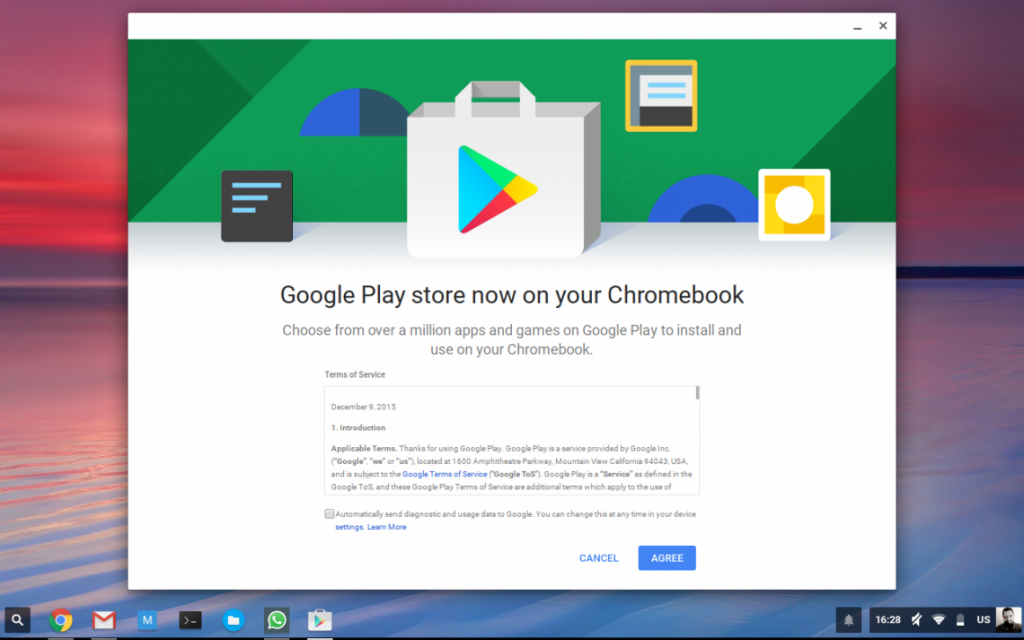What is Chrome OS?
Chrome OS is Google’s answer to the modern way of computing. The idea is, you already spend a lot of your time online. Be it checking and responding to your mails, browsing social media, using online productivity suites like Google Docs, using cloud storage like Google Drive, Dropbox and the likes. It therefore kinda makes sense to just focus on improving your online experience, right? Chrome OS then stripped down everything to just the Google Chrome browser. At launch, Chrome OS and the Chromebooks that came running it were considered glorified browsers, and to some extent, they were. The devices were rather underpowered as you don’t really need a ton of power to run a web browser. They had impressive battery life and were pretty affordable compared to traditional laptop PCs.
Are Chromebooks and Chrome OS worth your money?
A lot of the earlier sterotypes of the operating system has changed. The platform has become a lot more robust and continues to grow by the day, curving itself a place at the table of Operating systems. But Chrome OS has been and still remains a very unique take on computing as a whole. It is fundamentally different from how traditional PCs work. The idea of doing everything on a web browser is an idea that doesn’t sit well with many people, noobs and geeks alike, but is it so crazy?
Pro’s of Chrome OS as a platform
One of the concerns many people have about Chrome OS is the thought that, you might not be able to get anything done without a stable internet connection. That the web-centric Chrome OS is useless without an internet connection. In reality, a huge and ever-expanding number of compatible apps works both online and off, including things like Gmail and Google Docs as well as calculator apps, calendar apps, news-reading apps, games, and even Google Play Movies. The Chrome Webstore also has a section dedicated to offline apps. While these may not exactly be comparable to what you get on a Windows PC, it is not nothing, and with a little patience, you’d be surprised just how much you can get done without a connection on a Chrome OS device. In 2015, Google made the Play Store available on select Chromebooks, and the ability to run Android apps. This was a breathe of new life to Chrome OS as a platform as the operating system would now have access to one of the biggest app stores on the planet right now.
This now meant that Chromebooks were suddenly more than just glorified web browsers. The versatility and functionality of Android as a platform was now one of the selling points of Chrome OS. Recently, Google has announced that Chrome OS will be able to run Linux apps. Linux is the most robust platform on the planet.Variants of Linux are most widely used in the Internet of things and smart devices. Other variants of Linux are the most popular operating system on other web servers and supercomputers. Desktop Linux isn’t that badly off either. It comes in third in popularity after Windows and MacOS, which is no mean fete. In my opinion, this is where Chrome OS put on the big boy shoes and joins the major leagues. For a long time, we all saw Chrome OS as Google’s little pet project. If Chrome OS grows into a platform that combines the world of Android and Linux in one operating system, Microsoft has something to worry about.
Should you get a Chromebook instead of a PC?
Short answer, not just yet. Chrome OS has a bright future if its past is anything to go buy but I wouldn’t shell off funds to get a Chromebook just yet. First, while the number of OEMs making Chromebooks is growing fast, there is nearly as much variety like you’d have when looking for a Windows PC. Chrome OS is also in the phase where it is still rediscovering itself. Buying a Chromebook today carries little to no guarantee that it will still be relevant in 3 or 4 years. Maybe the next big update to Chrome OS will require a little more beefy specs. However, If you are that tech enthusiast that likes to tinker with softwares, you might think of investing in one. There is a legion of developers who have managed to do some impressive things to Chromebooks. For instance, you can install Ubuntu desktop on a Chromebook, effectively unlocking its full potential. Featured Image courtesy of ComputerWorld

